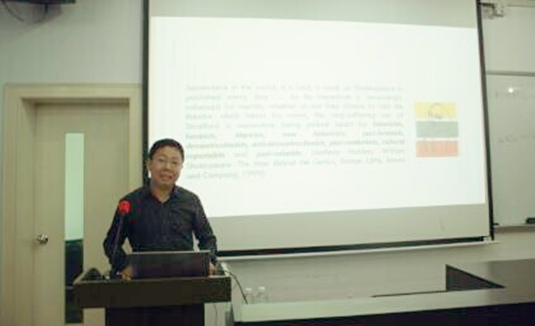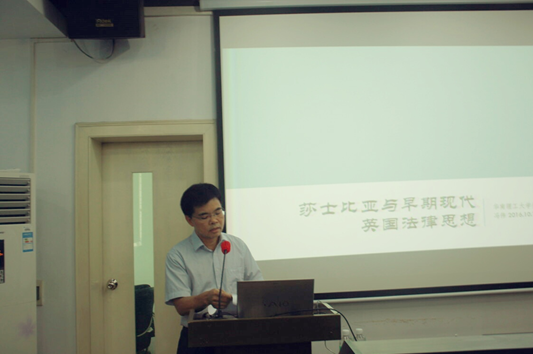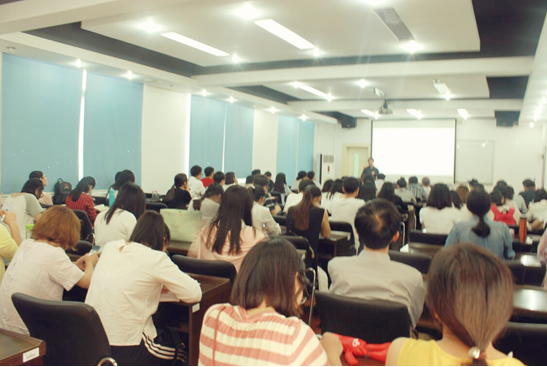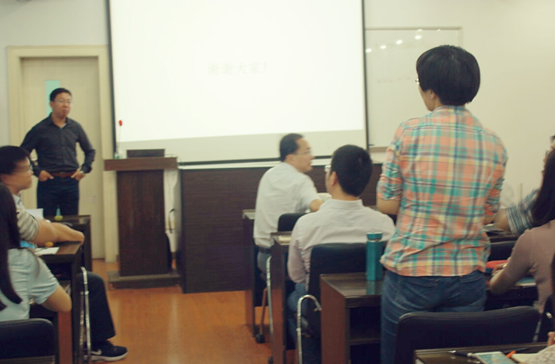Professor Feng Wei of Northeast Normal University, gave a lecture on Shakespeare and the Legal Thought in Early Modern England in the School of Foreign Languages of South China University of Technology (SCUT) on October 13th. The special lecture was hosted by Professor Li Yingyuan, Dean Zhong Shuneng, Secretary Zhouhao, Deputy Dean Han Jinlong, Deputy Secretary Liu Caigang, Professor Wu Jianguo, Professor Cai Jinting and Professor Liu Jianbo with many students participating.

Professor Feng Wei giving his lecture

Professor Li Yingyuan, addressing the participants
Starting with a quotation of a paragraph from Shakespeare’s The Man Behind the Genius, Professor Feng Wei introduced several legal concepts in Shakespeare's dramatic works, such as imperative theory, moral precepts, contractual theory, and eternal rationality. He pointed out those legal concepts are definitely not a perfect answer of the playwright to what is law for good. On the contrary, Shakespeare problematized and demythologized those notions into abstract conceptions of ethics, justice, and law. Therefore, those seemingly self-evident questions become dubious and people started thinking about those questions from new perspectives. Illustrating how western law culture was shaped.
Later on, Professor Feng analyzed the imperative theory of King Lear from a political philosophy perspective and he put forward that all law issues could be attributed to criminal sanction.
Finally, he discussed rampant injustice due to the innate fragility of justice.


Professors and students attentively listening
At the end of the lecture, Professor Feng recommended three books--The Interaction Of Law And Religion, Justice, and The Crowd, to the impressed audience. Then he promptly and thoroughly responded to questions.
Professor Feng said the purpose of this lecture is to communicate and collaborate with our teachers and students. He subsequently expressed his hope that all of the attendees will carry forward the spirit of scientific research and put forward new ideas.

Q&A Part

